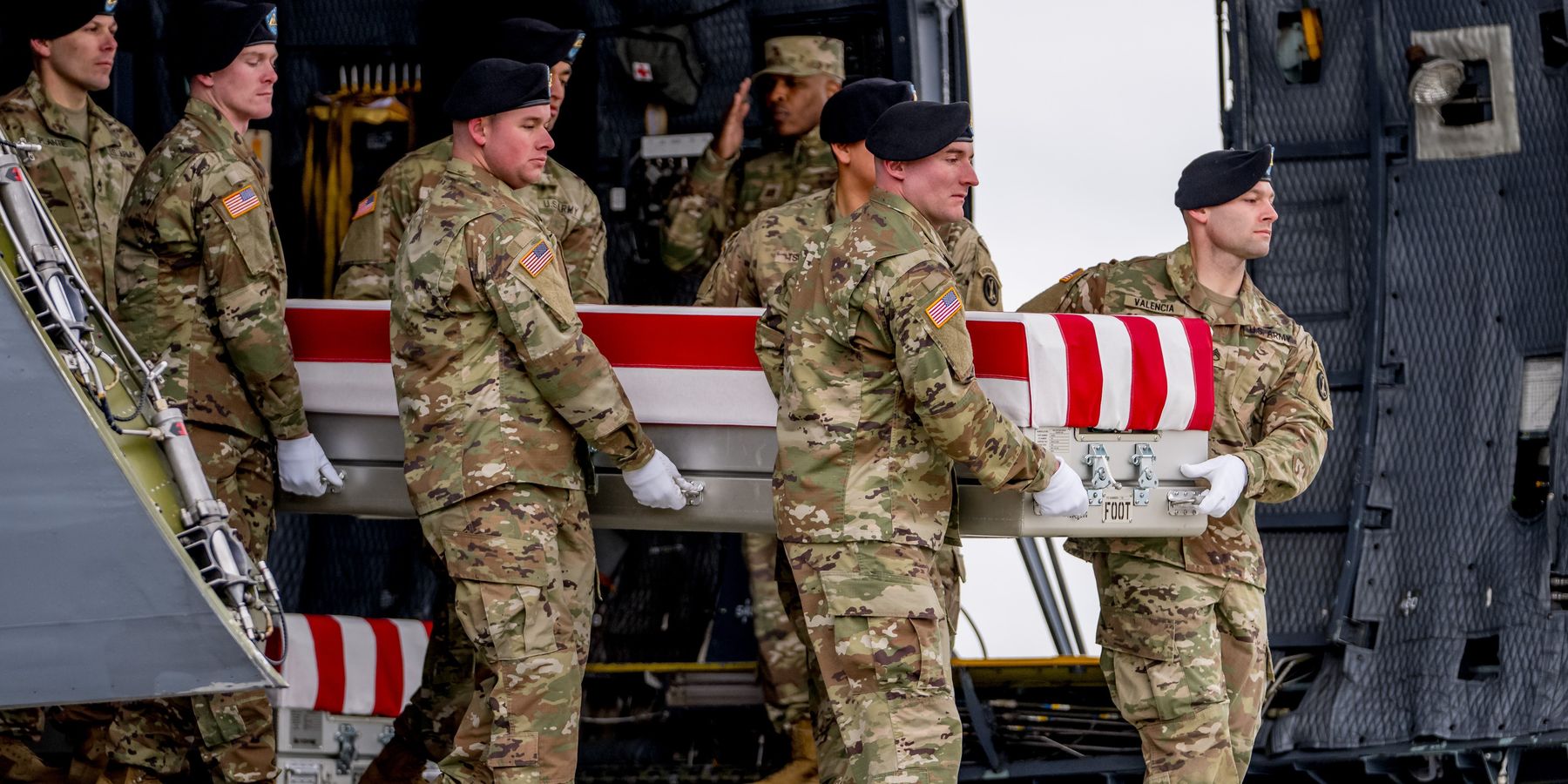For three years the United States has been giving Ukraine everything it needs by way of offensive and defensive weapons in its war with Russia. Critically, this has included air defense systems, much of it taken from our own national stockpiles.
Now it turns out that our own troops may have been denied access to anti-drone air defense systems and more sophisticated radar detection months before a lethal attack on a small American outpost in Jordan on Jan. 18, 2024. The drone assault, reportedly launched by the Islamic Resistance in Iraq, an Iranian-backed militia group, resulted in the deaths of three American Army soldiers.
According to the Washington Post, which obtained access to the massive Army internal investigation of the incident through a Freedom of Information Act (FOIA) request, the small outpost was ill-prepared for the attack on a number of levels. But this is key:
The investigation’s findings appear to have some contradictions. For instance, investigators faulted Tower 22’s leaders for failing to “visualize risk” and not appreciating the likelihood of an attack.
Yet commanders above them also failed to envision the base’s vulnerability. Four months before the attack, Army Central, which oversees operations throughout the Middle East, denied a request for an air defense system capable of shooting down drones because, investigators found, only one such system was available and troops in the United States needed it to prepare for deployments. A request for a radar system that could better detect drones also was denied, the report said.
The only counter-drone defenses at Tower 22 were electronic warfare systems designed to disable the aircraft or disrupt their path to a target, according to the investigation and previous reporting by The Post.
A spokesperson for Army Central did not respond to repeated requests for additional information, including regarding who at Army Central denied Tower 22’s appeal for an air defense system.
That "previous reporting" found that:
The early findings, which have not been previously reported, indicate that the drone may have been missed “due to its low flight path,” a U.S. defense official with direct knowledge of the assessment told The Washington Post. Additionally, this person said, the base, known as Tower 22, was not outfitted with weapons that can “kill” aerial threats like drones, and instead relied on electronic warfare systems designed to disable them or disrupt their path to a target.
It is outrageous to think that after the Oct. 7, 2023 Hamas attacks on Israel, when the entire region was put on heightened alert, that this outpost was not considered at risk enough to get what it needed to protect itself, especially after some 160 drone and rocket attacks had been launched against similar U.S. outposts in Syria and Iraq at the time.
Meanwhile, the Council on Foreign Relations has a nifty tracker of all the funding and specific weapons (more than $70 billion) that the United States has given to Ukraine since Feb. 2022 including all sorts of anti-drone and anti-missile air defense systems. On October 11, 2023, just three months before the Tower 22 attack, the U.S. announced a new tranche of weapons, "up to $200 million" from the stockpiles, including "additional air defense capabilities, anti-tank weapons, and other equipment to help Ukraine counter Russia's ongoing war of aggression." It was the among a series of tranches that fall that included drawdowns from the DoD stockpiles and aid to contract for more.
Experts had been warning that up until the end of the Biden administration, DoD stockpiles were running low of the sophisticated weapons systems, including air defenses.
An email to CENTCOM public affairs to ask about this thread in the Washington Post report was unreturned as of Monday afternoon.
"This report is maddening to me," said Ret. Lt. Col. Daniel Davis, a senior military fellow at Defense Priorities and host of the Deep Dive podcast. "Its unconscionable to have denied adequate air defense for the risk all of our troops face. We've spent hundreds of billions on Ukrainian defenses and we skimped on our own. Shameful."
He added the longstanding critique that subsequent administrations, including the current Trump team, have not articulated why these troops are even in the Middle East today (2,000 in Syria and 2,500 in Iraq). The outpost in Jordan was reportedly part of U.S. "anti-ISIS" operations in that region just over the Syria border.
"These troops provide zero strategic benefit to the U.S.," he added. "The claim that we're there for the 'enduring defeat of ISIS' is complete military nonsense. It's simply untrue. The troops should be withdrawn, immediately. Doing so would not only reduce our risk in the region, it would end the potential for the death of American servicemembers."
- Veterans: Why we want Trump to keep Iraq withdrawal deal ›
- Bring US troops home from Iraq and Syria now ›

















